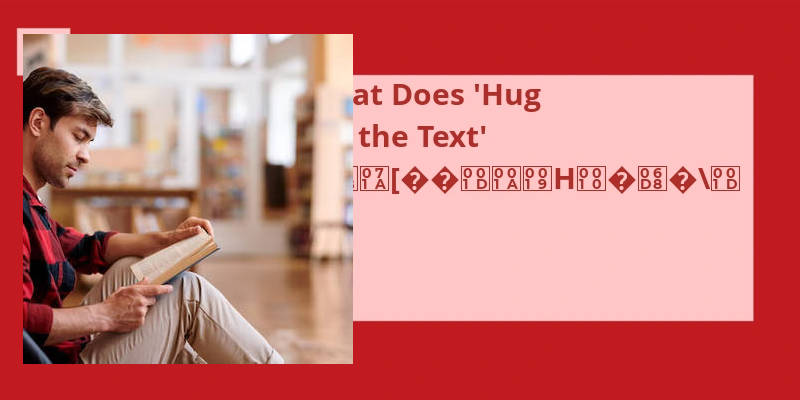When someone deletes a message, it can leave you feeling confused, frustrated, or even hurt. You may wonder why they felt the need to delete it, what they were trying to hide, or if they're upset with you in some way. However, it's important to keep in mind that there could be a variety of reasons why someone might delete a message. Perhaps they made a typo or sent it to the wrong person, or they simply changed their mind about what they wanted to say. Regardless of the reason, it's important to know how to respond in a respectful and understanding manner. Here are some tips on what to say when someone deletes a message.
Does Deleting a Text Mean the Other Person Can’t See It?
When it comes to messaging, it’s common to send messages we regret or simply don’t want to be seen. However, many people assume that deleting a text or conversation means it’s gone forever, and the other person will no longer be able to see it. Unfortunately, this isn’t always the case. Although the text will disappear from your phone or device, the other person might still have a record of it.
To completely erase the evidence of the conversation, you can delete the chat from your device entirely. By doing so, the chat and all the messages will be removed from your device, and there will be no record of the conversation. However, note that the other person will still have access to the messages as long as they keep the chat on their device.
If youre looking for more secure messaging options, Signal and Telegram are two of the secure messaging apps that offer self-destructing messages. In other words, they let you control when and how messages disappear. These apps also offer end-to-end encryption, which means only people involved can read the chat, making it more secure than standard messaging services.
Deleting a message might also affect your conversation history, depending on your messaging app. Some messaging apps group messages to make it easier to follow the conversation.
How to Delete Messages From Both Your Device and the Recipient’s Device
- Open your messaging app
- Select the conversation containing the message you want to delete
- Press and hold the message you want to delete
- Select “Delete” or the trash can icon
- Choose the option to “Delete for everyone” or “Delete for both”
- The message will be permanently deleted from both your device and the recipient’s device
However, the act of deleting texts can also be a cause for suspicion or concern in some situations. It may indicate that the person is hiding something, trying to cover their tracks, or avoiding accountability. So, let’s explore some possible reasons why someone might delete texts and what it could mean for your relationship with them.
What Does It Mean When Someone Deletes Texts?
Deleting texts can be seen as a method of maintaining ones privacy, as text messages may contain sensitive information that the sender or recipient doesn’t want others to see. For example, business professionals may delete texts containing confidential information such as passwords or stored account numbers to protect themselves from identity theft. Additionally, with the popularity of social media, electronic messages can also contain personal or embarrassing details that the sender may want to keep private.
In some cases, deleting texts can also be a sign of a troubled relationship. When a person routinely deletes all of their messages, it can be seen as a form of controlling behavior. The person may be attempting to isolate the other person or keep information hidden from them. This can be a red flag for emotional or domestic abuse.
Whether for privacy reasons or to cover up wrongdoing, understanding the motivations behind this behavior can help in navigating our digital world.
The Psychology Behind Deleting Texts: What Prompts People to Delete Their Messages Even When It Is Not Necessary for Privacy Concerns.
This article explores the reasons why people delete their text messages even if there are no privacy concerns.
Source: What does it mean if my husband keeps deleting his text …
Technology has given us the capability to communicate with anyone, anywhere, and at any time. However, this convenience also comes with certain pitfalls. Have you ever sent a message that you immediately regretted? Maybe you were angry, emotional, or simply made a typo. In this article, we explore the topic of deleting messages and whether it’s immature or a justified action.
Is Deleting Messages Immature?
Deleting messages is a topic that’s generated much discussion in recent times. Some people believe that deleting messages is immature, while others argue that it’s a necessary action that can help prevent conflict and misunderstandings. There’s no doubt that when people send messages, they often do so in the heat of the moment and without fully considering the consequences of their words. This can lead to situations where messages are sent that weren’t intended, or where the sender immediately regrets sending the message.
When it comes to managing your contacts and conversations, it’s important to understand the relationship between the two. Many people may wonder whether deleting a conversation will also delete the associated contact. However, this isn’t the case. Deleting a conversation will simply remove the messages from your messaging app, but it won’t remove the contact from your phone’s address book. In fact, deleting a contact won’t even stop that person from continuing to send you text messages. Let’s explore this topic further to fully understand how to best manage your contacts and conversations.
Does Deleting a Conversation Delete the Contact?
Deleting a conversation with someone on your phone doesn’t necessarily delete the contact as well.
This means that you can still call or text that person if you need to, but you won’t see the past conversation history unless you’ve backed it up to a different location. Because of this, it’s often necessary to export your conversation history to another location, such as an email, cloud drive, or computer, before deleting the conversation.
This means that if you still have conversation history with that person, even if you delete them as a contact, the messages will still be in your phone.
It’s also important to understand that even if you delete a contact or a conversation, that person can still send incoming text messages to you. This is because text messages are sent through your cellular network, not through your phones contacts list. If you want to block a contact from sending you text messages, you’ll need to use the blocking feature in your phones settings or contact your cellular provider for assistance.
In addition to blocking a contact, there are other ways to manage the conversations on your phone. For example, you can archive conversations to remove them from your main inbox without deleting them completely. You can also use filters or folders to organize your conversations based on different criteria, such as date, sender, or topic. These tools can help you keep your phones conversation history organized and make it easier to find specific conversations in the future.
It’s important to manage your conversations and contacts carefully to ensure that you can easily access the information you need while keeping your phone organized and efficient. If you’ve any questions or concerns about managing your phones conversations and contacts, contact your phone manufacturer or cellular provider for assistance.
How to Export Conversation History From Your Phone to Another Location
- Connect your phone to a computer or laptop using a USB cable.
- Navigate to the messaging app and locate the conversation you want to export.
- Select the conversation and click on the “Export” button.
- Choose the location where you want to save the conversation history.
- Click “Export” and wait for the process to complete.
- Disconnect your phone from the computer or laptop.
In the world of modern communication, it’s not uncommon to receive messages that get unsent before you’ve the chance to read them. While this can be confusing and frustrating, it’s often not a cause for concern. In fact, there are a variety of reasons why someone might choose to unsend a message, from simple typos to second thoughts about the content. In this article, we’ll explore some of the most common motivations behind this behavior and what it might mean for your relationship with the sender.
What Does It Mean if a Guy Unsends a Message?
It could also mean that the person was hesitant to send the message in the first place and immediately reconsidered. Perhaps they realized that what they said could be misinterpreted or seen as inappropriate. This could be an indication that the person is wary of how they come across and is very aware of the lines they cross.
On the other hand, the person may have sent the message impulsively and then immediately regretted it. This could be a sign of insecurity or emotional turmoil. The person may be struggling mentally and sent the message in a moment of weakness, only to quickly backtrack and avoid potential confrontation or rejection.
Another possibility is that the person is playing games or trying to manipulate the situation. They may want to create confusion or uncertainty in your mind, hoping that you’ll be curious and intrigued by their actions.
Ultimately, the reasons behind why someone unsends a message are varied and complex. What’s certain is that the action indicates some level of emotional or psychological unease. Whether it was an innocent mistake, an impulsive decision, or a calculated move, it’s always worth evaluating the situation and assessing how you feel about the persons actions.
How to Deal With Someone Who Frequently Unsends Messages.
- Communicate with the person and express how their frequent unsending of messages makes you feel
- Ask the person why they feel the need to unsend messages and try to find a mutually acceptable solution
- Set boundaries and expectations for communication with the person, including a commitment to not frequently unsend messages
- Consider whether this behavior is a red flag for a larger issue in the relationship and address it accordingly
Now that we know what happens when we delete a conversation on Messages, it’s important to understand the various reasons why one might choose to do so. Whether it’s to clear up clutter in your messages or to remove a sensitive conversation, deleting a conversation can serve a variety of purposes. However, it’s also important to be aware of the limitations of the feature and it’s impact on other participants in the conversation.
What Does Deleting a Conversation Do on Messages?
Deleting a conversation on Messages can be a necessary action for many reasons. Perhaps you want to clean up your inbox or remove an old conversation that’s no longer relevant. This means that none of the messages you exchanged with someone will be retrievable on your device after deletion.
Moreover, you won’t be able to access or view any of the deleted messages once you’ve deleted a conversation. If you need to export or save any of the messages, you should make sure to back them up before deleting the conversation permanently. This is especially important for important conversations that might contain important information that you may need in the future.
However, it’s essential to keep in mind that you’re permanently erasing your copy of that conversations history. Additionally, you should be aware that the other participants in the conversation will still have access to the chat history, so it’s always best to communicate carefully and discreetly on digital platforms.
How to Permanently Delete Conversations on Messages
- Open the Messages app on your device.
- Swipe left on the conversation that you want to delete.
- Tap on the Delete button that appears.
- You’ll then be prompted to confirm that you want to delete the conversation. Tap on Delete.
- The conversation will now be deleted permanently from your device.
- Note: If you’ve multiple devices synced to the same iCloud account, you’ll need to delete the conversation on each device individually in order to permanently delete it.
Conclusion
In conclusion, the act of deleting a message can be perceived in different ways depending on the context in which it occurs. It could be seen as a harmless action, a sign of regret or even a red flag in certain situations. While it may be tempting to jump to conclusions, assuming the worst or getting angry may not be the best approach. Instead, it can be helpful to communicate openly, express your feelings calmly and seek clarification where necessary. Ultimately, how we respond to someone deleting a message depends on our own values, communication style and goals in the relationship.






